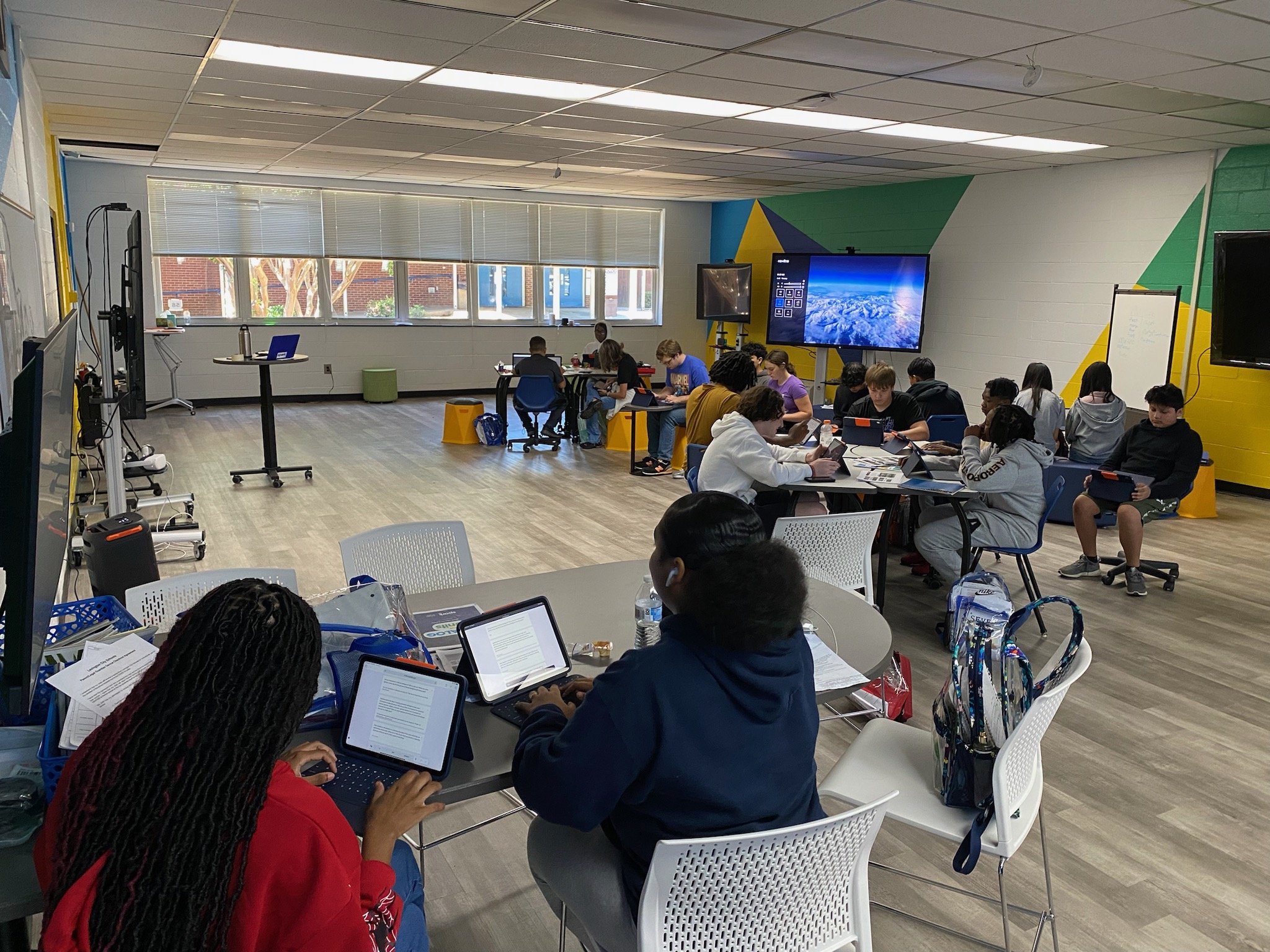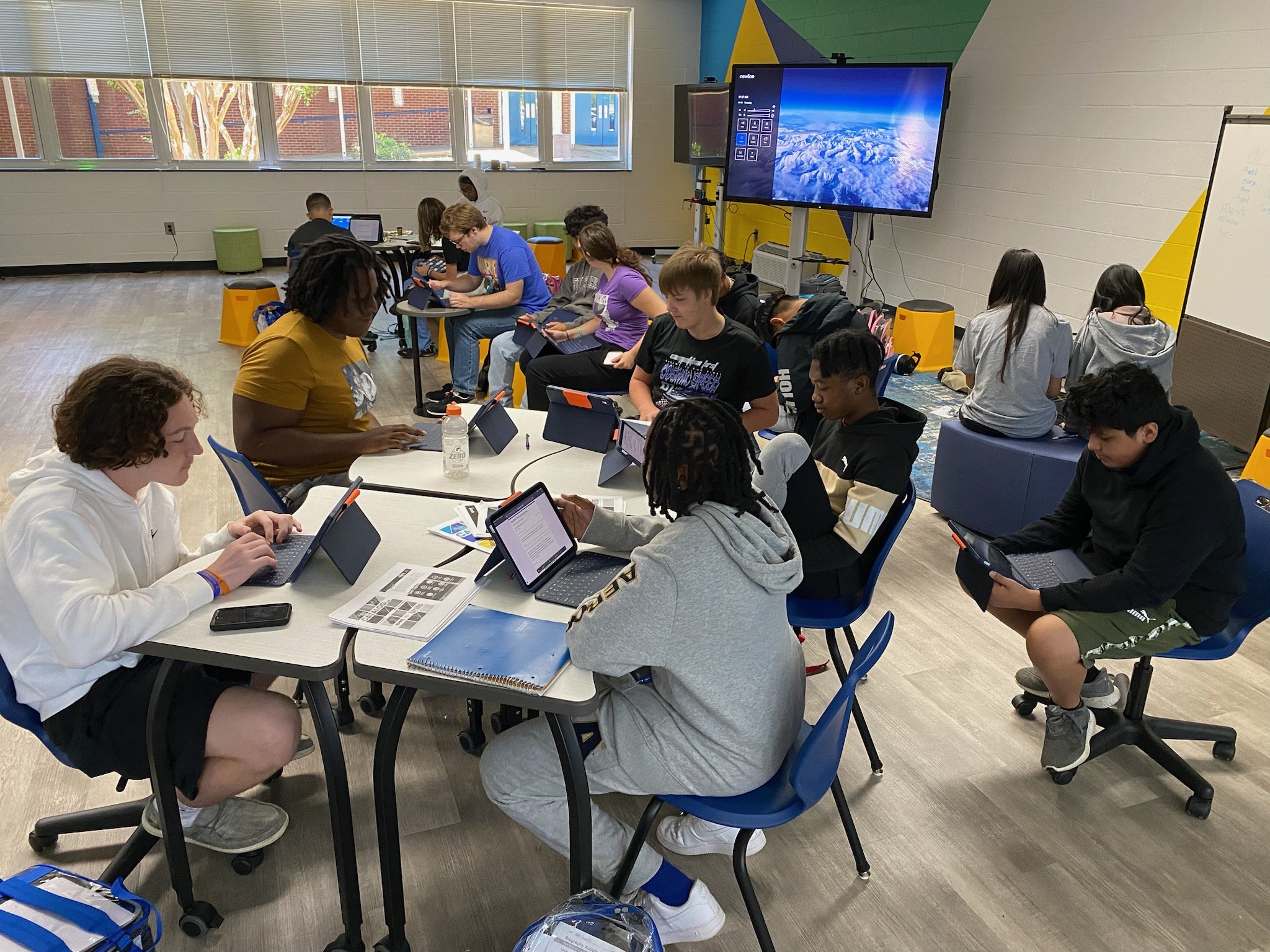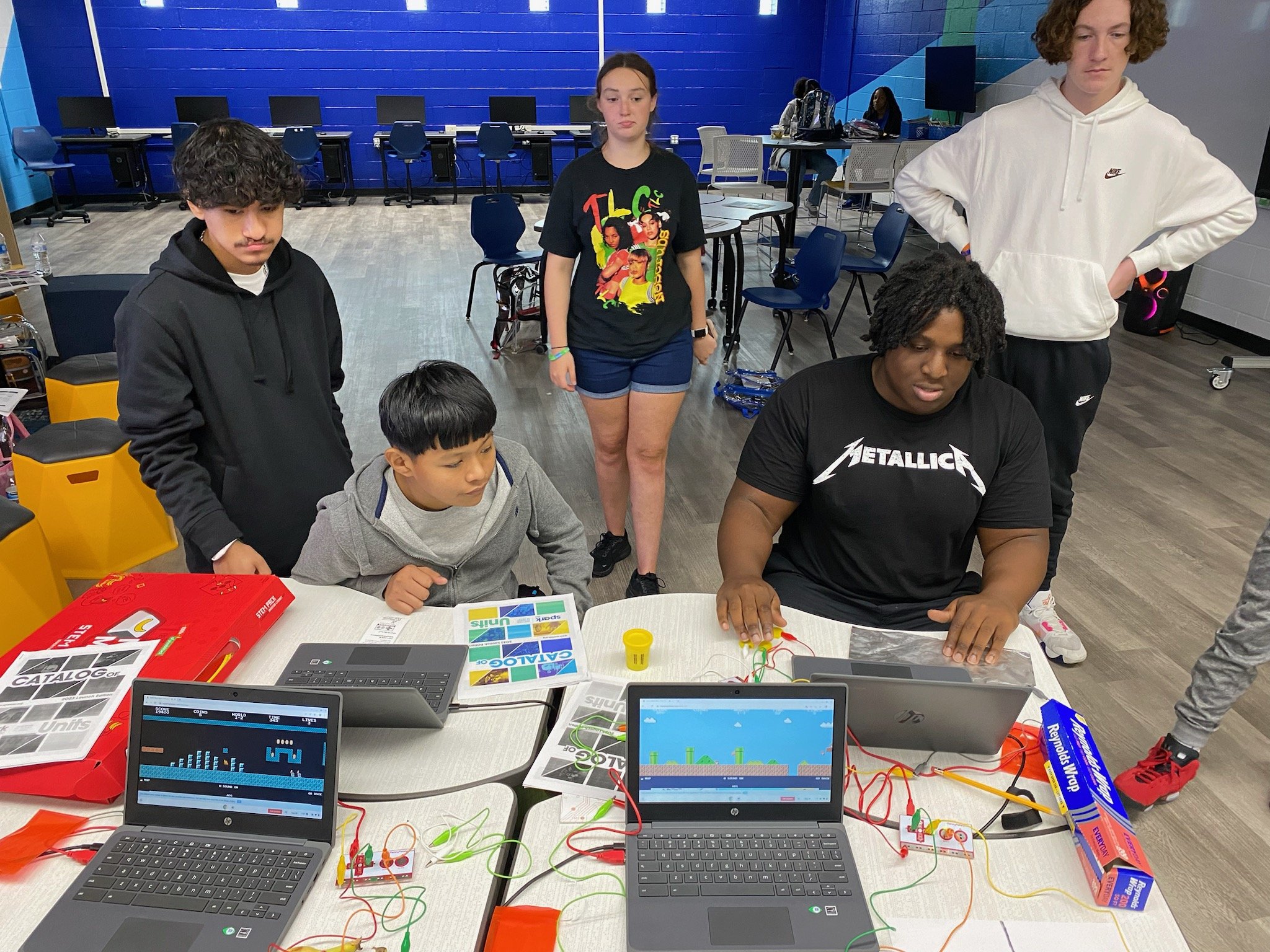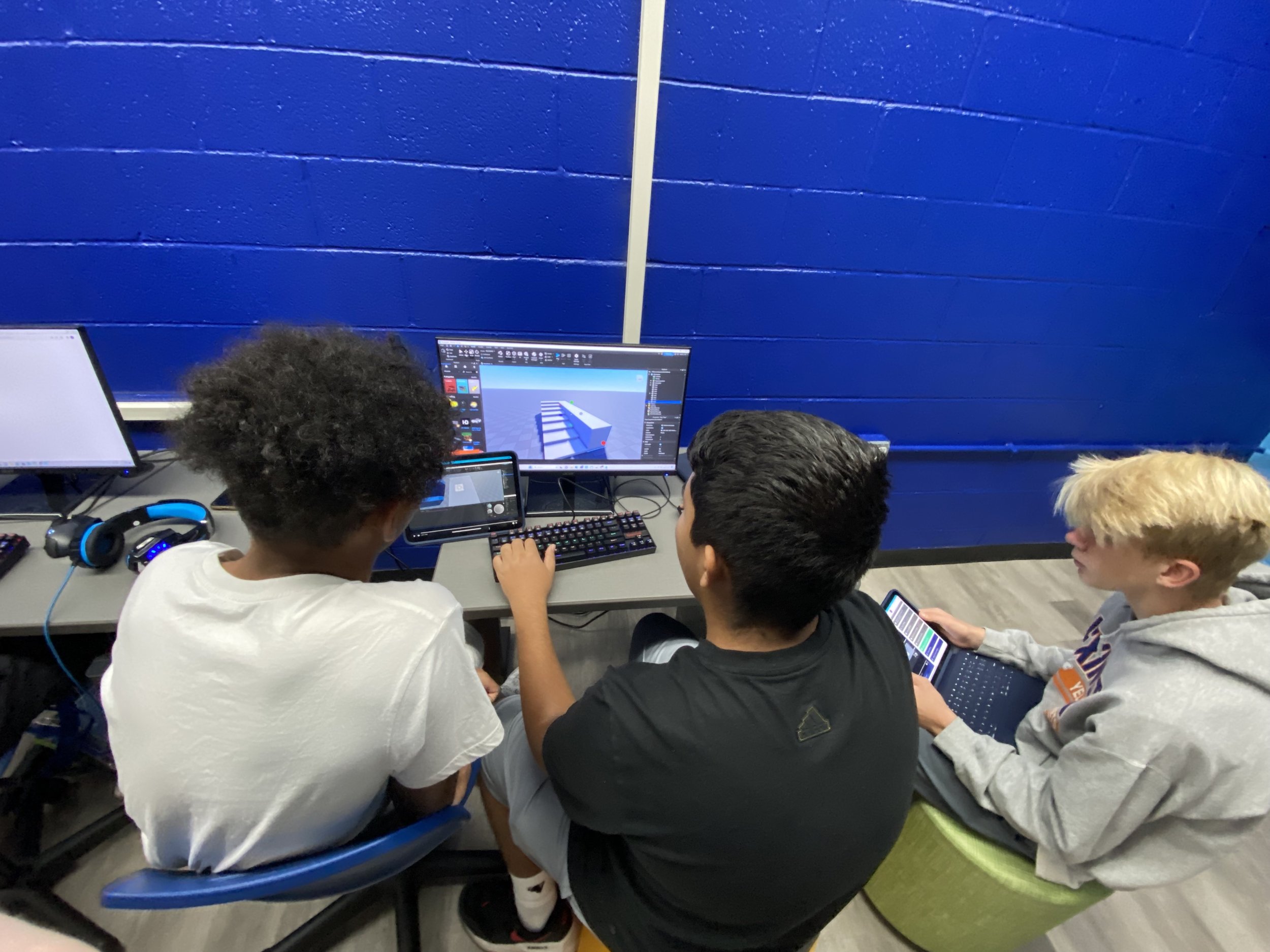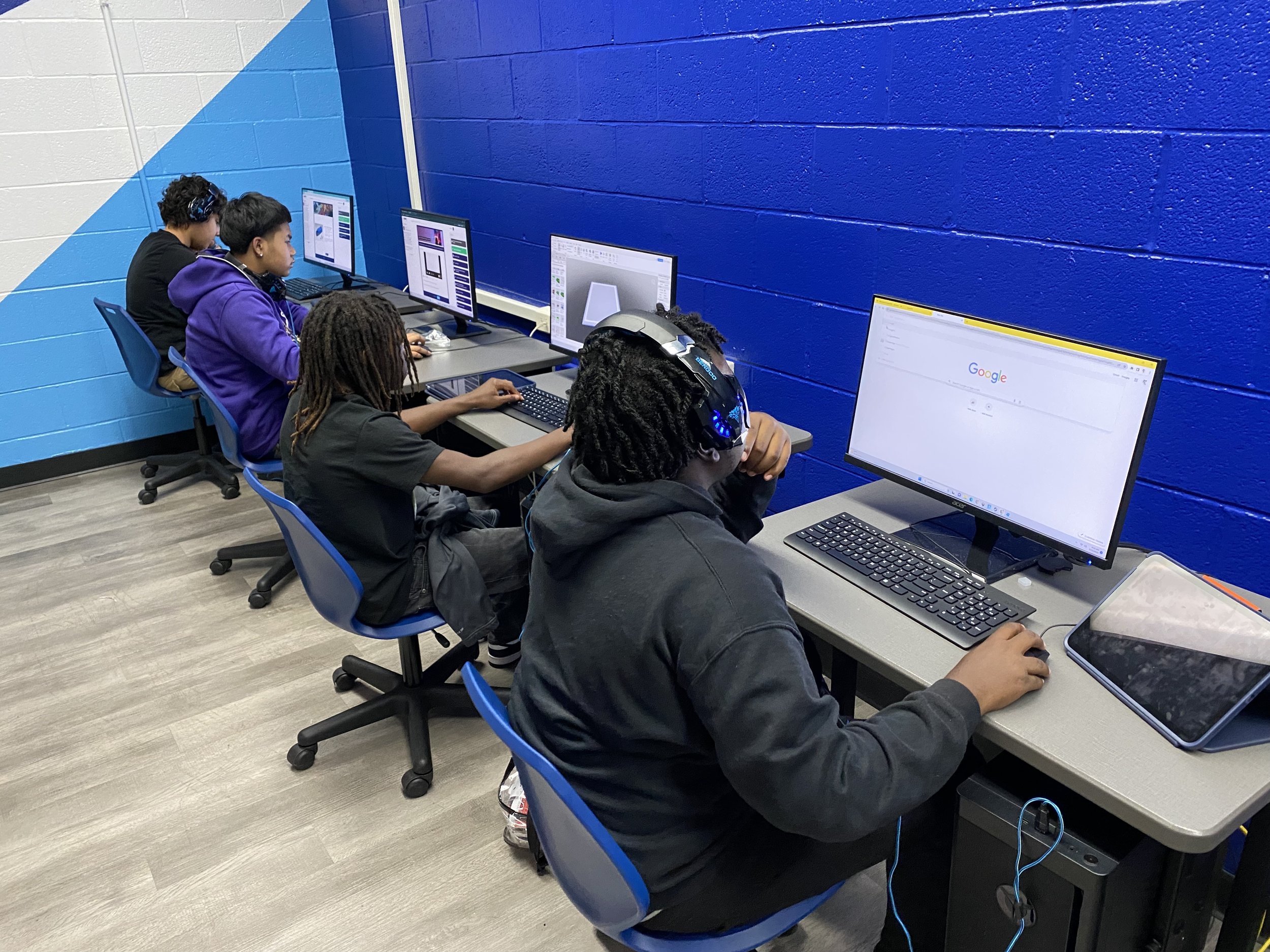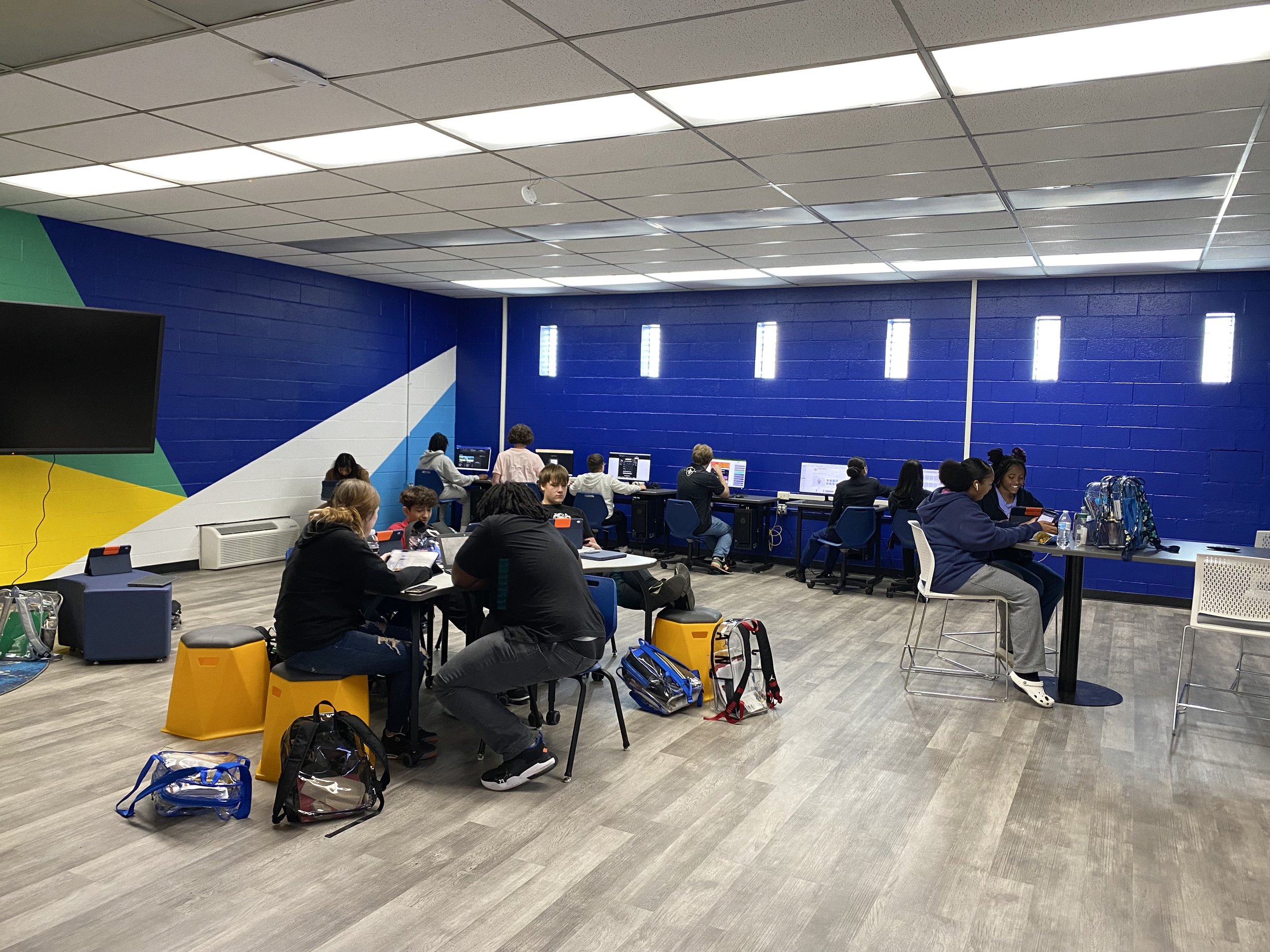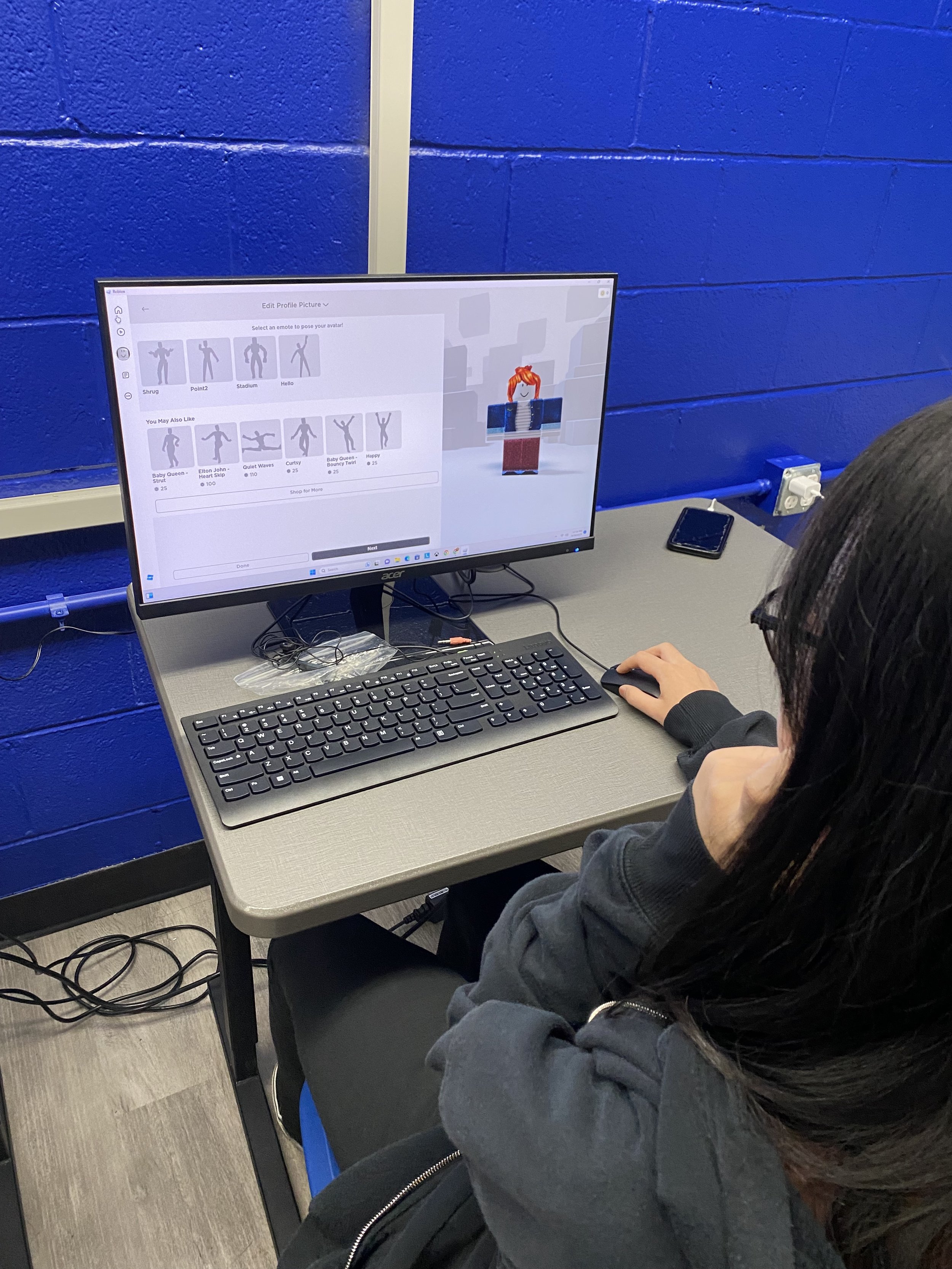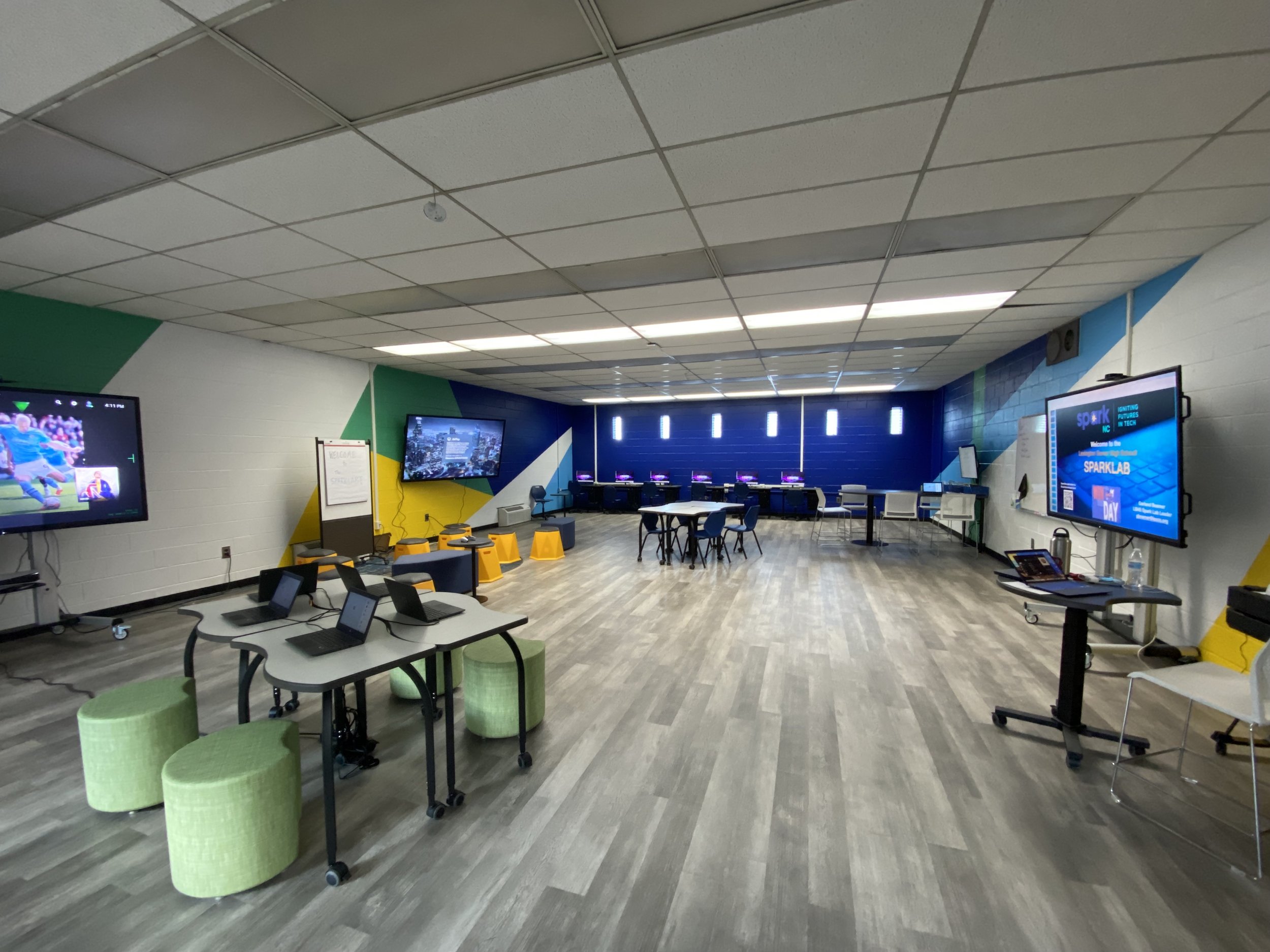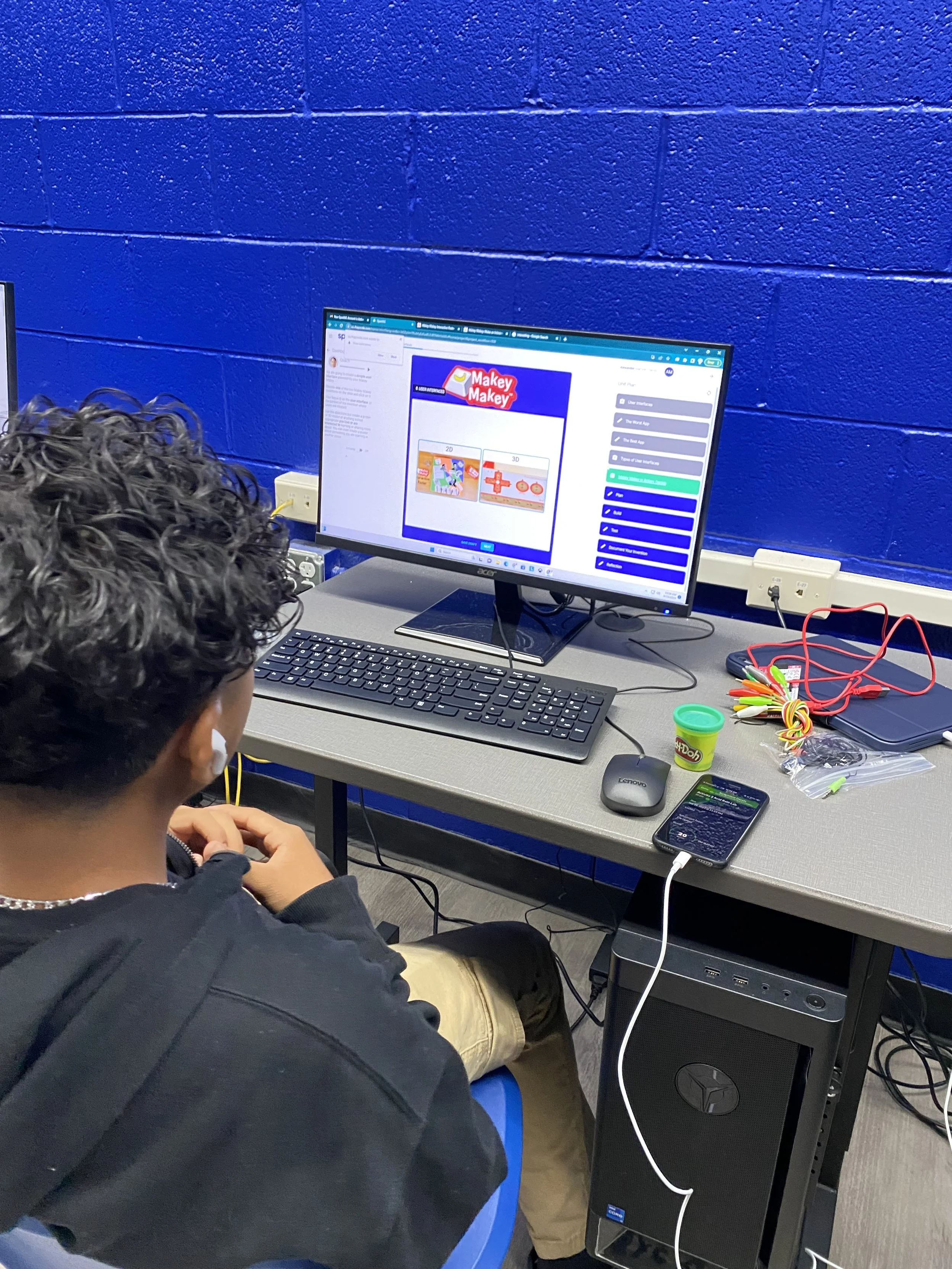New learning environment at LSHS will prepare students for futures in tech
Maury Wafford and Lexington Senior High School SparkLab Leader Garland Beamer are pictured near the entrance of the classroom. {Contributed photo/Garland Beamer}
Sparks are flying at Lexington Senior High School. However, they aren’t fire related.
Instead, the aforementioned sparks referenced will be used to prepare high school students for careers in technology. Recently, LSHS revealed its new SparkLab. An initiative of the Innovation Project (a nonprofit organization led by North Carolina public school district leaders), SparkNC is a novel learning environment equipped to expose students to all things tech related.
Per its website, SparkNC is a revolutionary effort to help our learners engage with high-tech fields like artificial intelligence and machine learning, software development, computer systems engineering and cybersecurity. Through our interdistrict network, learners will have opportunities to explore these fields and collaboratively prepare for modern work. SparkNC is a completely new way to do school: learner-centered, industry-relevant and competency-based.
Leading the charge, in this space, at LSHS is Garland Beamer, the new SparkLab leader. Now in his seventh year of education, Beamer is experiencing consistent enthusiasm in his role.
“Since I was a child, I’ve always wanted to explore the newest tech gadgets and see how they operate. I’ve always incorporated the use of technology into my lesson plans. The tools I’ve had access to as a teacher [laptops, iPads, etc.] have made my job much easier than I think it would have been back in the day. I often think to myself how different my day-to-day life would be without these tools, which makes me very thankful we have access to them. I think the technological advancements we’ve seen over the last few decades have completely changed the world as we know it. I’m excited to explore these topics with my students as we learn about the world of technology together.”
So, how does SparkLab operate? Students have 50+ units they can explore at their own pace. Main topics include Artificial intelligence and machine learning, Cybersecurity, Data Analytics, Computer Systems Engineering, Design UX/UI, Game Development and E-sports, Exploring Tech Fields and Software Development. If the student completes eight units, he’ll receive a High-Accelerated Learner credit that counts as an elective towards his graduation requirements.
“Within each of these topics, there are live lessons being taught by myself and other SparkLab leaders from around the state, experiential learning opportunities for students inside the SparkLab as well as off-campus, and 50+ self-paced learning units on the learning platform we use in the lab called Rhapsode.”
Additionally, this model of teaching provides students with the opportunity to pivot, if it’s deemed necessary.
“If students do one coding unit and decide they don’t like it, they can switch to something else without it negatively impacting them! This gives students a huge advantage in that they can learn what they want to learn, instead of being forced to learn topics they have little or no interest in.”
One visit to the SparkLab will quicky confirm it’s not your traditional classroom setting. Bright shades of blue, green, yellow and white adorn the walls of the cozy environment. There are no desks. Students sit at tables with high chairs, on cushioned stools and in gaming seats. Along the back wall is a row of gaming PCs. A large TV is stationed in a corner with game system controllers connected to it. Another TV in the room can be used for teaching or to utilize the virtual reality game.
Along with there being no requirement for students to remain entrenched in a topic they aren’t interested in, there is also no credit for the class, which means GPAs won’t be affected. Beamer noted another advantage of SparkLab is the exposure for students who have been disproportionately impacted by Covid-19 and who historically are underrepresented in technology.
“Students can come in and explore topics they are interested in, be creative, learn how to communicate effectively with others and learn how to collaborate with others. If they end up loving it, complete eight units and get the credit and go on to get a job in the tech industry, I consider that a success. At the same time, if a student comes in, explores some topics in tech, decides it is not for him that is still a success because the student learned something about himself. This model is so different from a typical school classroom and that is what is so exciting about it!”
Beamer is eager to dive into a controversial topic, Artificial Intelligence.
“I think everyone is scared of AI because they think AI is going to take over the world, or replace them at their jobs, etc. Although I will admit, AI can be used in some very negative ways, the potential it has to be a powerful technological tool is incalculable. AI is being used in the development of medicines and vaccines, predicting weather patterns, making cars and airplanes safer, the list goes on and on. The students will take an in-depth look at how generative AI programs are created, how they work and will also discuss the ethical/moral dilemma of using them and when it is appropriate to do so.”
While it’s only been a month since school started, Beamer has high expectations for the program.
“My number one goal this year as the SparkLab leader is to provide a safe space for students to explore their interests in the world of technology. I want students to be creative. I want students to collaborate with one another. I want students to remain curious about things they want to learn more about, and I want them to know that getting stuck on something and becoming a critical thinker in order to overcome an obstacle is one of the most important lessons a person can ever learn.”
* The SparkLab will be hosting multiple community engagement events throughout the semester to allow parents, community members and stakeholders to come in to visit and see what students have been learning during their time in the lab. Beamer will be posting more information about these upcoming events over the next few weeks and the dates for these events will be included in calls home to parents and students.
*All photos contributed by Garland Beamer.


